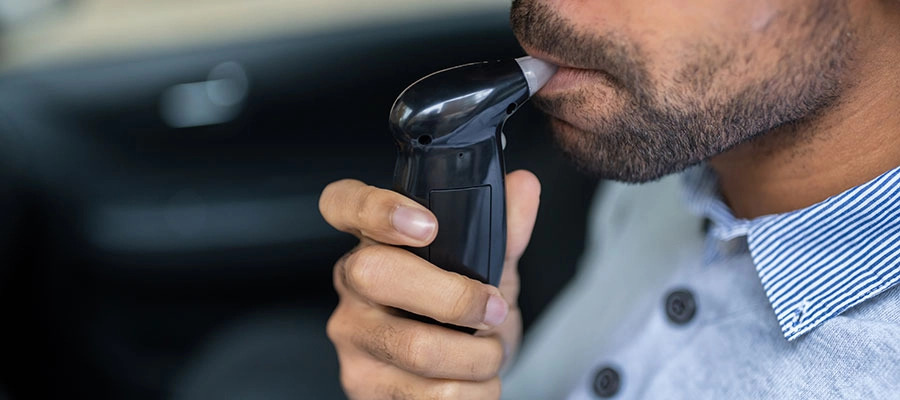Common Misconceptions About Breathalyzer Tests and Their Impact
Breathalyzer tests are often treated as irrefutable evidence in DUI cases. However, in practice these devices are far from foolproof. Understanding their limitations can be key to building a strong defense.
Let’s separate fact from fiction and explore the inaccuracies, biases, and myths surrounding breathalyzer results in Washington State.

Breathalyzer Myths That Could Impact Your Case
Myth #1: Breathalyzer Results Are Always Accurate
The reality is that breathalyzer results can vary due to a host of factors. From environmental conditions to the way the device is handled, many variables can impact the outcome. Even the widely used Draeger Alcotest 9510, the "official" breathalyzer machine in Washington, has faced controversy over its accuracy and calibration standards.
Myth #2: Refusing a Breathalyzer Test Is Always the Best Option
While you can refuse a portable roadside breath test without immediate penalties, refusing the test at the police station can result in severe consequences, including:
- License suspension: an automatic suspension for at least one year even if you are not subsequently found guilty of DUI.
- Blood test: A blood test will be ordered in lieu of the breathalyzer.
- Refusal: will appear on your driving record and may have severe consequences for insurance, etc.
- Courtroom perception: Refusal will be used by prosecutors to suggest guilt.
Myth #3: A Failed Breathalyzer Test Means a Guilty Verdict
A breathalyzer reading over the legal limit does not automatically mean conviction. There are numerous defenses that can challenge the validity of the results.
Factors That Can Invalidate Breathalyzer Results
Physiological Variations
Breathalyzers are calibrated for an “average” person. However, not everyone, obviously, fits this mold and factors like lung capacity, metabolic rate, and health conditions (e.g., diabetes, GERD, or acid reflux) can cause false positives.
- GERD Defense: Acid reflux can push alcohol vapors from the stomach into the mouth, leading to inflated BAC readings that don't reflect true blood alcohol levels.
Environmental Influences
- Substances in the Environment: Paint fumes, gasoline vapors, or cleaning solvents can interfere with results.
- Mouth Alcohol: Mouthwash, breath mints, or recently consumed foods (like ripe fruit or energy drinks) can leave residual alcohol in the mouth, causing false positives.
Improper Calibration and Handling
Breathalyzers require meticulous calibration to provide accurate readings. If the device is not properly maintained or if the operator mishandles it, the results can be wildly inaccurate.
Types of Breath Tests in Washington State
Portable Breath Test (PBT)
- Used roadside to establish probable cause.
- Voluntary: You can decline without penalties.
- Not Admissible in Trial: Results can only support the decision to arrest, not as evidence in court.
Official Breath Test (Draeger Alcotest 9510)
- Conducted at the police station.
- Results are admissible in court.
- Implied Consent: Refusal results in automatic penalties, including license suspension.
Common Errors in Breathalyzer Testing
Machine Errors
- Calibration Issues: Even a slight miscalibration can lead to inaccurate readings.
- Inability to Distinguish Chemicals: Substances like acetone, found in diabetics, can mimic alcohol and skew results.
Operator Error
- Improper Observation: Washington law mandates a 15-minute observation period before the test to ensure no substances are in the mouth. Failure to comply can invalidate results.
- Lack of Training: Many officers lack the technical knowledge to handle and interpret the device correctly.
Biological Factor
- Alcohol Absorption Rates: Breathalyzers measure breath alcohol, not blood alcohol, and may not reflect recent consumption accurately.
How Knauss Law Challenges Breathalyzer Evidence
At Knauss Law, we focus on uncovering flaws in breathalyzer evidence to ensure our clients receive a fair defense.
1. Independent Analysis
We work with forensic experts to scrutinize the breathalyzer's calibration records, maintenance logs, and testing protocols.
2. Challenging Procedures
Our attorneys examine whether law enforcement followed the proper protocols, from the observation period to the administration of the test.
3. Exposing Bias
We highlight the subjectivity and variability of breathalyzer readings, emphasizing alternative explanations for elevated BAC results.
4. Strategic Defense
By leveraging medical records, expert testimony, and procedural missteps, we aim to have breathalyzer evidence suppressed or its reliability questioned in court.
Don’t Let a Breathalyzer Define Your Future
A breathalyzer test can feel like an insurmountable obstacle, but with the right defense you have options. At Knauss Law, we combine legal expertise with a thorough understanding of breathalyzer technology to protect your rights and fight for the best outcome.
Contact us today for a consultation and take the first step toward regaining control of your case.

